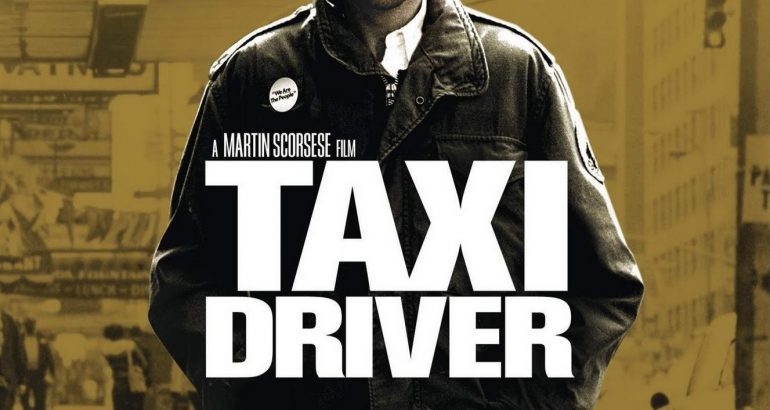
CINE FORO SOBRE CINE AMERICANO – ASPECTOS A CONSIDERAR DURANTE LA VISUALIZACIÓN DE LA PELÍCULA PARA EL POSTERIOR DEBATE: TAXI DRIVER
Un hito del cine americano de los años 70, quinto largometraje del director Martin Scorsese, nacido en 1942 y todavía en activo. Del mismo modo, fue el último trabajo para el cine del músico Bernard Herrmann, que había debutado mediante la banda sonora de Ciudadano Kane, en 1941 y fue el músico recurrente de Alfred Hitchcock durante muchos años. El leit motiv de Taxi Driver, a base de solos de saxo, se hizo muy famoso.
La película impactó sobre todo por atreverse a unos niveles de realismo sórdido que nunca había osado una película distribuida por una “Major”, en concreto de Columbia. Este aspecto se refleja en muchos ingredientes, del cual se hizo famoso el personaje de una prostituta adolescente, al que interpretó Jodie Foster, entonces desconocida.
La visión extremadamente sórdida que vierte de Nueva York a mediados de los años 70 aparecía ya en el tercer largometraje de Scorsese, Mean Streets (Malas calles), que protagonizaron Harvey Keitel y Robert De Niro. Scorsese retomó ambos actores, poniendo a Robert De Niro de protagonista absoluto, por primera vez, y a Keitel en un personaje secundario, de proxeneta. De Niro se convirtió en una estrella por esta película, y trabajaría varias veces más con Scorsese, como en New York, New Yorw o Goodfellas (Uno de los nuestros).
La estética opta por envolver el realismo sórdido en un trabajo fotográfico que acentúa los colores y aporta un cierto esteticismo urbano (el humo de las alcantarillas, las luces brillantes, la música).
Los cinéfilos destacaron que apenas cuenta nada, que se atreve a tener poco argumento para larga duración, privilegiando los aspectos descriptivos sobre los narrativos, y apostando por una progresión en el horror y la violencia. Sociológicamente, se comentó que había una ambigüedad en la postura de Scorsese sobre su protagonista: ¿es un héroe o un psicópata? ¿El autor se identifica con el punto de vista del protagonista, ya que todo se vierte a través de sus ojos? En este sentido, se usó como argumento que Scorsese tuvo vocación de sacerdote, y que el guionista, Paul Schrader, posteriormente también director, es calvinista radical.
La película obtuvo la Palma de Oro en la edición de Cannes de 1976. Nominada para la música, a De Niro y a Foster.



